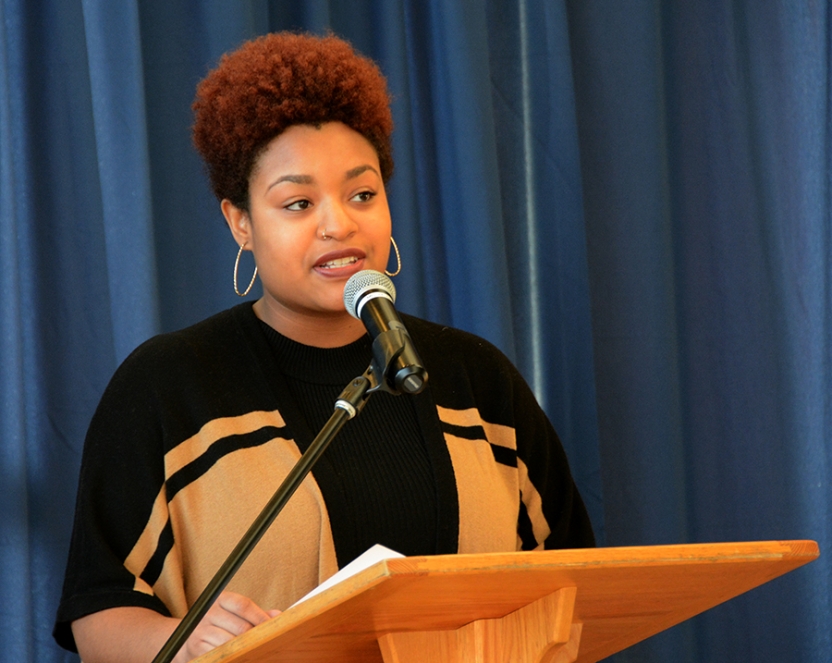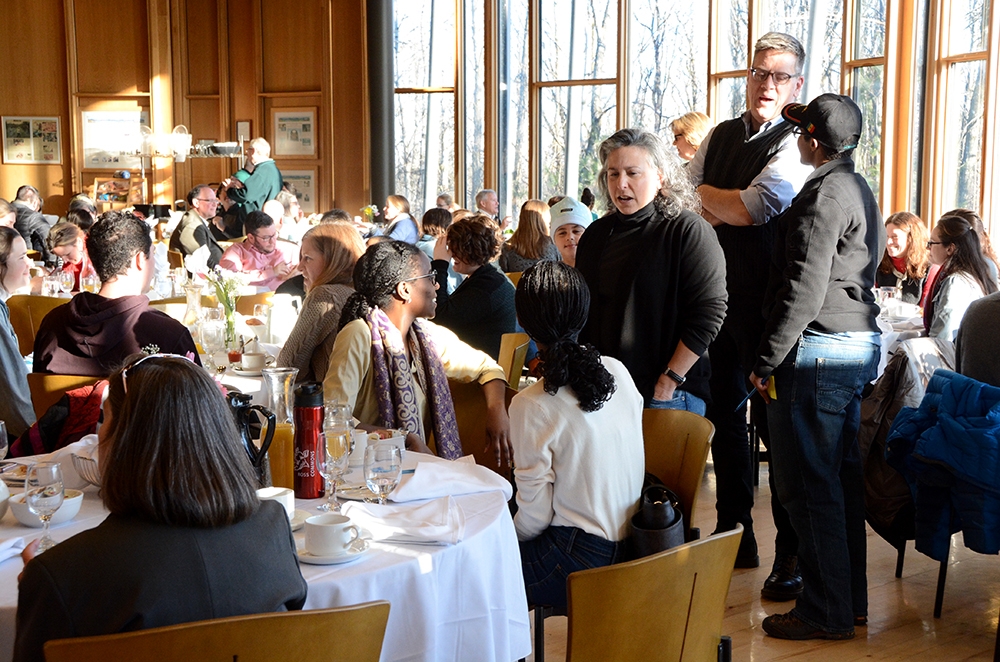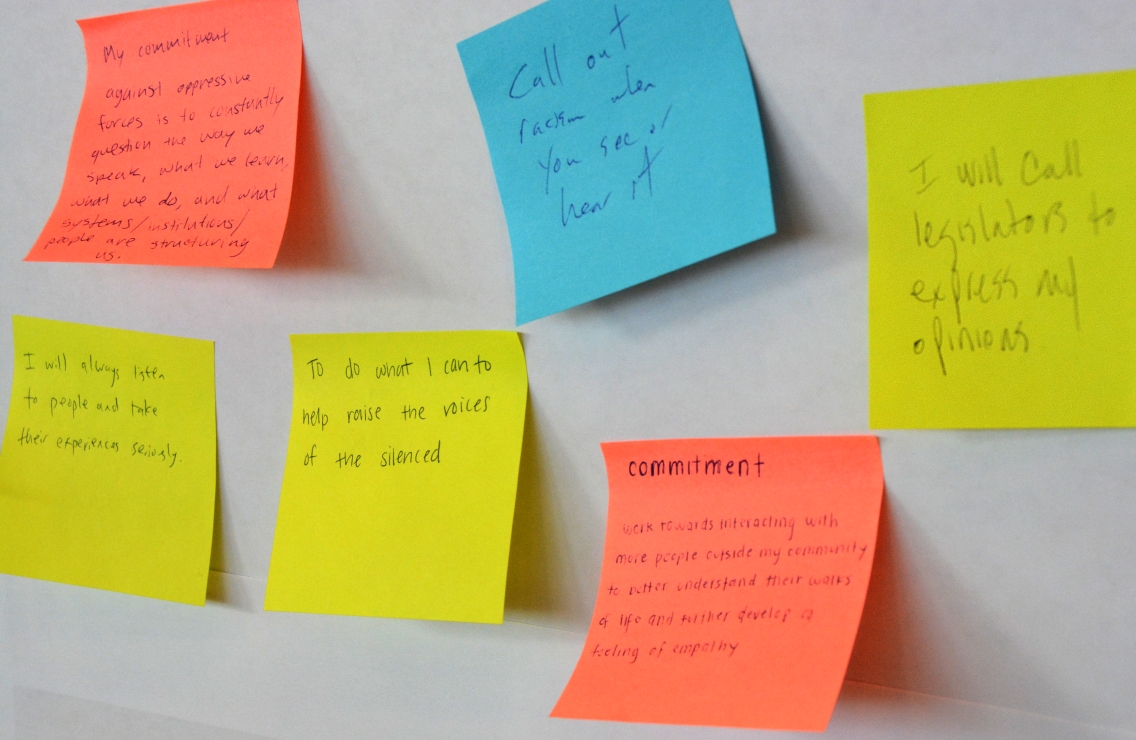Speakers at MLK Breakfast See "Challenging Times" Ahead

MIDDLEBURY, Vt. – With the inauguration of a new U.S. president just four days away, the speakers at the Martin Luther King Jr. Community Breakfast predicted that 2017 will be a challenging time for civil rights in America.
Diku Rogers ’16, the Wonnacott Commons resident advisor, said, “In this time that worries or frustrates many of us, I urge everyone to move beyond the option of silence. It is more important now than ever before that you not be silent, and acknowledging injustice is often the first step.”
This January 16th community gathering, added Rogers, is intended “to shed light on the power of community within the context of challenging times. As Dr. King himself said, ‘In the end we will not remember the words of our enemies, but the silence of our friends.’”
Rogers asserted that “the continued killings of unarmed Black people” and “the silence surrounding the murder of trans people” are “heartbreaking” current events. “In 2017 it is also rattling to hear [Americans] say that immigrants should go back to their own countries when we are a country of immigrants.”
With more than 100 people in attendance at Atwater Dining Hall, Professor Miguel Fernandez, Middlebury’s chief diversity officer, said the breakfast “gives us a chance to reflect on Dr. King’s legacy in particular at this challenging moment in time.”

The 1985 Middlebury graduate said “sadness returns” when he is reminded that the country’s first Black president “will relinquish the presidency” in a few days. It causes the professor of Spanish to focus on a singular thought: “We recognize that all those civil rights strides that have been made – with many more still needed – could be undone with this next administration” in Washington.
Sophomore Nia Robinson, the third of the morning’s four speakers, said lately she has been having dreams of falling, which suggest to her that she is “lost or out of control.”
Anger or sadness about the plight of America are valid reactions to current events, Robinson said, and “it becomes harder to create a tomorrow we cannot imagine.” The student activist from Chicago read from a poem she had written years earlier, which included this closing:

Every breakfast table in Atwater was equipped with pads of Post-It Notes, pens, and a page of quotations from King, Ta-Nehisi Coates, bell hooks, and others. Orten asked everyone to “reflect intentionally in the company of thoughtful others” and write down “what we are convicted about and what we will commit ourselves to do in the coming days.”
Two white boards on wheels were set up on the side of the dining hall – one for “Convictions” and the other for “Commitments” – and within a quarter hour each board was filled with 50 or more brief, personal statements on colorful notes.
The visible display of heartfelt expressions from the Middlebury community affirmed the message President Laurie Patton sent to the breakfast: “All acts, no matter how small or seemingly insignificant, have the potential to change the world,” she said in a note read aloud by Prof. Fernandez. “And, if done with the right reflection and intent, our small everyday acts can be acts of service.”
– Reporting and photography by Robert Keren

